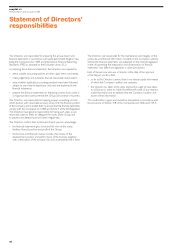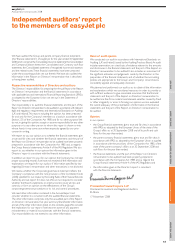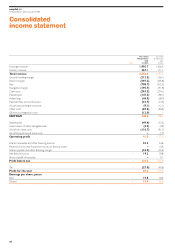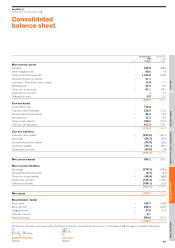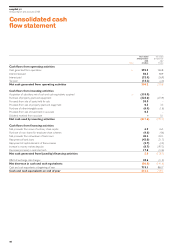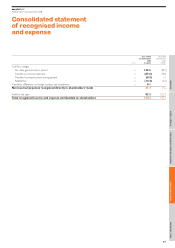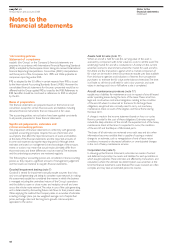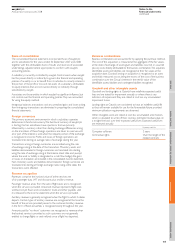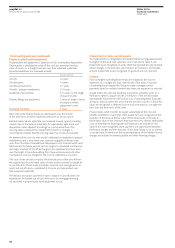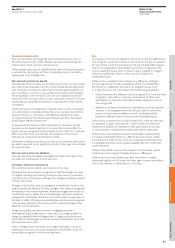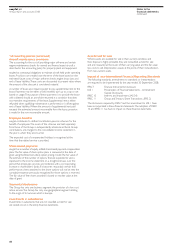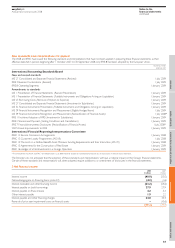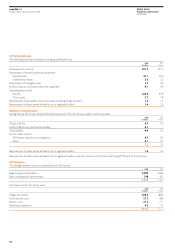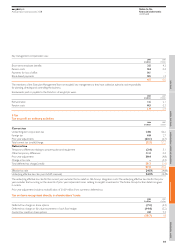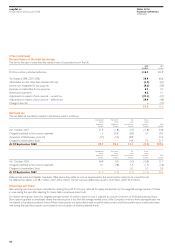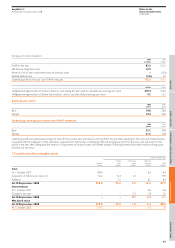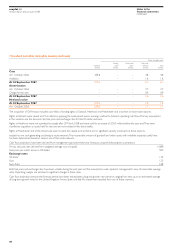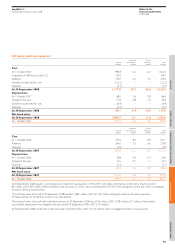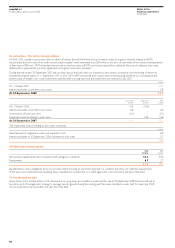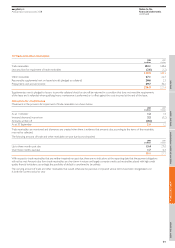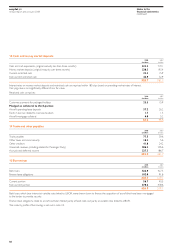EasyJet 2008 Annual Report Download - page 54
Download and view the complete annual report
Please find page 54 of the 2008 EasyJet annual report below. You can navigate through the pages in the report by either clicking on the pages listed below, or by using the keyword search tool below to find specific information within the annual report.
1 Accounting policies (continued)
Aircraft maintenance provisions
The accounting for the cost of providing major airframe and certain
engine maintenance checks for owned and finance leased aircraft is
described in the accounting policy for property, plant and equipment.
easyJet has contractual obligations to maintain aircraft held under operating
leases. Provisions are created over the term of the lease based on the
estimated future costs of major airframe checks, engine shop visits and
end of lease liabilities. These costs are discounted to present value where
the amount of the discount is considered material.
A number of leases also require easyJet to pay supplemental rent to the
lessor. Payments may be either a fixed monthly sum up to a cap or are
based on usage. The purpose of these payments is to provide the lessor
with collateral should an aircraft be returned in a condition that does
not meet the requirements of the lease. Supplemental rent is either
refunded when qualifying maintenance is performed, or is offset against
end of lease liabilities.Where the amount of supplemental rent paid
exceeds the estimated amount recoverable from the lessor, provision
is made for the non-recoverable amount.
Employee benefits
easyJet contributes to defined contribution pension schemes for the
benefit of employees. The assets of the schemes are held separately
from those of the Group in independently administered funds. Group
contributions are charged to the consolidated income statement in
the year in which they are incurred.
The expected cost of compensated holidays is recognised at the
time that the related service is provided.
Share-based payments
easyJet has a number of equity settled share-based payment compensation
plans. The fair value of share option plans is measured at the date of
grant using the Binomial Lattice option pricing model. The fair value of
the estimate of the number of options that are expected to vest is
expensed to the income statement on a straight-line basis over the
period that employees services are rendered, with a corresponding
increase in shareholders’ funds. If it becomes reasonably certain that
performance criteria attached to the share options will not be met, the
cumulative expense previously recognised for those options is reversed.
The fair value of free shares awarded is based on market value at the
date of grant.
Segmental disclosures
The Group has only one business segment: the provision of a low cost
airline service. The Group has only one geographical segment relating
to the origin of its turnover which is Europe.
Investments in subsidiaries
Investments in subsidiaries that are not classified as held for sale
are stated at cost in the entity financial statements.
Assets held for sale
Where assets are available for sale in their current condition, and
their disposal is highly probable, they are reclassified as held for sale
and are measured at the lower of their carrying value and the fair value
less costs to sell. Depreciation ceases at the point of their reclassification
from non-current assets.
Impact of new International Financial Reporting Standards
The following standards, amendments to standards or interpretations
are required to be implemented for the year ended 30 September 2008:
IFRS 7 Financial Instruments: Disclosure
IAS 1 Presentation of Financial Statements – Amendment:
Capital Disclosures
IFRIC 10 Interims and Impairment (IAS 34)
IFRIC 11 Group and Treasury Share Transactions (IFRS 2)
The disclosures required by IFRS 7 and the amendment to IAS 1 have
been incorporated in these financial statements. The adoption of IFRIC
10 and IFRIC 11 has had no impact on these financial statements.
easyJet plc
Annual report and accounts 2008
Notes to the
financial statements
continued
52


